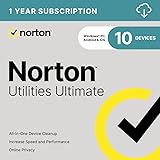Are you torn between investing in the stock market and putting your money into real estate? You’re not alone. Many investors struggle to decide which path is best for their financial goals.
The stock market has historically given superior overall returns compared to other options. But, investing in real estate offers a sense of security and tangible assets.
So, which should you choose? The answer depends on your individual financial goals, risk tolerance, and investment horizon.
Key Takeaways
- Historical data shows that the stock market has typically outperformed other investments.
- Real estate investing can provide a hedge against inflation.
- Your investment choice should align with your financial goals and risk tolerance.
- Diversification is key to a successful investment strategy.
- Understanding your investment horizon is crucial in making a decision.

Understanding Your Investment Options
The stock market and real estate market are both great for making money. But they appeal to different kinds of investors. Knowing what each offers is key to smart investing.
The Appeal of Financial Markets
The stock market lets you buy and sell shares of big companies. It’s known for liquidity and the chance for big gains over time. You can spread out your money across many areas, like tech or healthcare.
The Allure of Property Ownership
Real estate investing means buying and managing properties. You can make money from rent or sell them for a profit. It’s a solid asset that can grow in value.
Key Differences at a Glance
| Characteristics | Stock Market | Real Estate Market |
|---|---|---|
| Liquidity | High | Low |
| Tangibility | Intangible | Tangible |
| Income Generation | Dividends | Rental Income |

In summary, stocks and real estate each have their own pluses and minuses. Think about your financial aims, how much risk you can take, and how long you can wait for returns. This will help you choose the best path for you.
The Fundamentals of Stock Investing
Learning about stock investing is key to smart financial choices. The stock market often offers great returns. For example, the S&P 500 index has averaged a 10.39% annual return from 1992 to 2024, including dividends.
How the Stock Market Works
The stock market lets companies raise money by selling shares to the public. People buy and sell these shares hoping to make money. Prices change due to many things, like how well a company does, the economy, and what people think.

Types of Stocks and Securities
There are many kinds of stocks and securities to invest in. Common stocks let you own part of a company and vote. Preferred stocks have a better claim on money and assets but you can’t vote. Other options include bonds, mutual funds, and ETFs.
Getting Started with Stock Investments
To begin investing in stocks, you need to open a brokerage account. You can do this online or through a traditional firm.
Brokerage Accounts and Platforms
Platforms like Fidelity, Charles Schwab, and Robinhood are easy to use. They offer many investment choices. They also have tools, resources, and support to help you make good choices.
Investment Minimums
How much you need to start investing varies. Some places don’t require any money, while others do. Always check the details before you start.
| Brokerage Platform | Minimum Investment | Fees |
|---|---|---|
| Fidelity | $0 | $0 trading commissions |
| Charles Schwab | $0 | $0 trading commissions |
| Robinhood | $0 | $0 trading commissions |
Knowing the basics of stock investing helps you make better choices. It includes understanding the market, the different types of investments, and how to start. This knowledge can help you reach your financial goals.
The Basics of Real Estate Investing
For those looking for something other than the stock market, real estate is a solid choice. It offers a real and possibly profitable way to invest. You can buy properties directly or through Real Estate Investment Trusts (REITs).
Different Types of Real Estate Investments
There are many ways to invest in real estate, such as:
- Direct property ownership
- REITs
- Real estate mutual funds
- Real estate crowdfunding
Each option has its own good and bad sides. For example, owning property directly gives you control but needs a lot of money and work.
Understanding Property Valuation
Knowing how much a property is worth is key in real estate. It depends on location, condition, and market trends. Getting the value right helps investors make smart choices.
Entry Requirements for Real Estate
To begin investing in real estate, you need to know about down payments and financing.
Down Payments and Financing
Buying a property usually requires a big down payment. There are many financing choices, like mortgages and home equity loans.
Real Estate Investment Trusts (REITs)
REITs let people invest in real estate without handling properties themselves. The FTSE Nareit All REIT index showed a 11.14% annual return from 1972 to 2024. This shows REITs can be a good long-term investment.
By learning the basics of real estate investing, including the different types and how to start, investors can make better choices for their portfolios.
Stocks or Real Estate: Comparing Returns
When looking at investment options, it’s important to know how stocks and real estate have done in the past. Both are popular, but their results can differ a lot.
Historical Performance of Stock Markets
The stock market has often done well, with the S&P 500 averaging about 10% yearly return. This steady growth makes stocks appealing for long-term gains.
Real Estate Appreciation and Rental Income
Real estate offers gains through property value increase and rental income. Housing markets have seen 4% to 8% annual gains. Rental income adds to the profit, making real estate a good investment.
Total Return Comparison
When looking at the total returns of stocks and real estate, we must think about inflation and the chance to reinvest.
Accounting for Inflation
Inflation can reduce the value of returns from both stocks and real estate. Stocks have often beaten inflation, keeping their value high.
Reinvestment Potential
The ability to reinvest is key for long-term growth. Stocks are easier to reinvest in than real estate, which is less liquid.
| Investment | Average Annual Return | Liquidity |
|---|---|---|
| Stocks | 10% | High |
| Real Estate | 4%-8% | Low |
In conclusion, stocks and real estate both offer good returns, but their performance changes based on history, inflation, and reinvestment. Knowing these points helps in making smart investment choices.
Risk Assessment and Management
Risk is a big part of investing in stocks and real estate. It’s important to have a plan to reduce risks. Knowing the risks of each market helps investors make smart choices.
Volatility in Stock Markets
The stock market can change a lot in just a few days. This can be scary, but it also means big chances for profit. As Warren Buffett said, “Price is what you pay. Value is what you get.” Knowing the difference is crucial.
Real Estate Market Risks
Real estate is less shaky, but it has its own risks. These include changes in the local economy and managing properties. Spreading out your investments is key, just like in the stock market.
Diversification Strategies
Spreading your investments across different areas is a smart move. This means investing in various types of assets, sectors, and places.
Portfolio Allocation Considerations
When deciding how to split your investments, think about your risk level, goals, and how long you can wait. A balanced mix can lower risks and increase gains.
Managing risk well means understanding and reducing it. By diversifying, investors can handle the ups and downs of both stock and real estate markets.
Liquidity and Accessibility Factors
Choosing between stocks and real estate depends on their liquidity and how easy they are to access. Investors need to think about how fast they can get in or out of an investment. They also need to consider how much money is needed for each.
The Liquidity Advantage of Stocks
Stocks are very liquid, meaning investors can buy or sell shares instantly during market hours. This is a big plus for those who might need their money quickly.
Real Estate’s Illiquid Nature
Real estate, on the other hand, is not very liquid. Selling a property can take months or even longer. This means investors in real estate need to think long-term.
Accessibility for Different Investor Types
Not all investors have the same access to these investments. For example, fractional shares make it easier for those with less money to invest in stocks.
Fractional Shares vs. Property Partnerships
Fractional shares let investors own a part of a stock, which means they need less money to start. Real estate partnerships or REITs also let investors get into real estate without managing properties themselves.
Tax Implications for Both Investment Paths
Knowing how taxes affect your investments is key to making the most money. Stocks and real estate each have their own tax rules. These rules can greatly change how much money you keep.
Capital Gains and Deductions
Stocks can lead to capital gains taxes if you sell for more than you bought them for. Real estate, however, offers tax breaks like depreciation and 1031 exchanges. These can help delay or lower capital gains taxes.
Tax Benefits for Real Estate
Real estate investors get tax breaks like mortgage interest and property taxes. These can cut down on what you owe in taxes.
Strategic Tax Planning
Good tax planning is vital for better investment returns. It means knowing how taxes work for your investments and using tax-friendly accounts.
Tax-Advantaged Accounts for Stocks
For stocks, tax-advantaged accounts like IRAs and 401(k)s can lower your tax bill. They let your money grow without taxes or offer tax-free withdrawals.
Depreciation and 1031 Exchanges for Real Estate
Real estate investors can use depreciation to lower their taxable income. 1031 exchanges also let them delay capital gains taxes by buying another property.
| Investment | Tax Implication | Tax Benefit |
|---|---|---|
| Stocks | Capital Gains Tax | Tax-Advantaged Accounts |
| Real Estate | Depreciation, 1031 Exchanges | Mortgage Interest, Property Tax Deductions |
Time Commitment and Management Requirements
Understanding the time and resources needed is key to effective investment management. Stock and real estate investing require different levels of involvement. This affects the overall investment experience.
Passive vs. Active Stock Investing
Stock investing can be adjusted to fit your level of involvement. Passive investing through index funds or ETFs needs little time, as they follow a market index. In contrast, active stock picking requires more time and research to choose and manage individual stocks.
The Hands-On Nature of Real Estate
Real estate investing is more hands-on. It involves choosing, managing, and maintaining properties. This can be time-consuming and may need direct oversight or a property manager.
Outsourcing Management Options
Investors wanting to save time can outsource management. Robo-advisors can manage stock portfolios. Meanwhile, property managers handle real estate tasks.
Robo-Advisors vs. Property Managers
| Service | Robo-Advisors | Property Managers |
|---|---|---|
| Investment Type | Stocks, ETFs, Index Funds | Real Estate Properties |
| Time Commitment | Low | Variable, depending on services |
| Cost | Typically 0.25% – 0.50% annually | Typically 8% – 12% of monthly rents |
Robo-advisors and property managers help investors manage their time. They have different costs and apply to different investments.
Which Investment Path Suits Different Investor Profiles
Knowing your investor profile is key to smart investing. Stocks and real estate appeal to different people. This depends on your financial goals, how much risk you can take, and your investment style.
For Beginners with Limited Capital
Starting with little money? Stocks might be easier to get into. You can buy parts of shares, making it cheaper to start. But, real estate crowdfunding lets you invest in property with less money too.
For Mid-Career Professionals
Those in mid-career often have more money to invest. They might choose both stocks and real estate. Stocks can grow over time, while real estate offers rental income and a solid asset.
For Approaching Retirement
As retirement nears, investors often look for safer options. Real estate is stable and can earn rental income. Stocks with steady dividends are also attractive.
For Wealth Preservation
For those aiming to keep their wealth, mixing stocks and real estate is wise. Stocks can grow, while real estate protects against inflation and market ups and downs.
Aligning Investments with Life Goals
Choosing between stocks and real estate should match your life goals. It’s not just one or the other. Many find a mix of both offers the best benefits.
| Investor Profile | Stocks | Real Estate |
|---|---|---|
| Beginners with Limited Capital | Accessible with fractional shares | Accessible through crowdfunding |
| Mid-Career Professionals | Liquidity and growth potential | Rental income and tangible asset |
| Approaching Retirement | Stable dividend-paying stocks | Stability and rental income |
| Wealth Preservation | Growth potential | Hedge against inflation and volatility |
Understanding your investor profile helps you choose the right investment path. Stocks, real estate, or a mix can align with your goals.
Making Your Investment Decision
Choosing between stocks and real estate depends on your financial goals and how much risk you can take. Both options have their good and bad sides, as we’ve talked about in this article.
If you’re thinking about investing in stocks, remember they can offer high returns and be easy to sell. Real estate, on the other hand, can give you rental income and property value growth. It also lets you own something real.
Before making a choice, think about your money situation, how long you can invest, and how much risk you’re okay with. Whether you pick stocks or real estate, having a solid plan is key to reaching your goals.
By looking at both options carefully, you can pick what’s best for you. This choice will help you achieve financial success in the long run.











